María José Fernandez is the April LOLA of the Month
María José is a recent graduate, LOLA Chapter Leader and Economist. We asked her to share about her journey with the ideas of liberty and for a look inside her Chapter- LILA Uruguay.

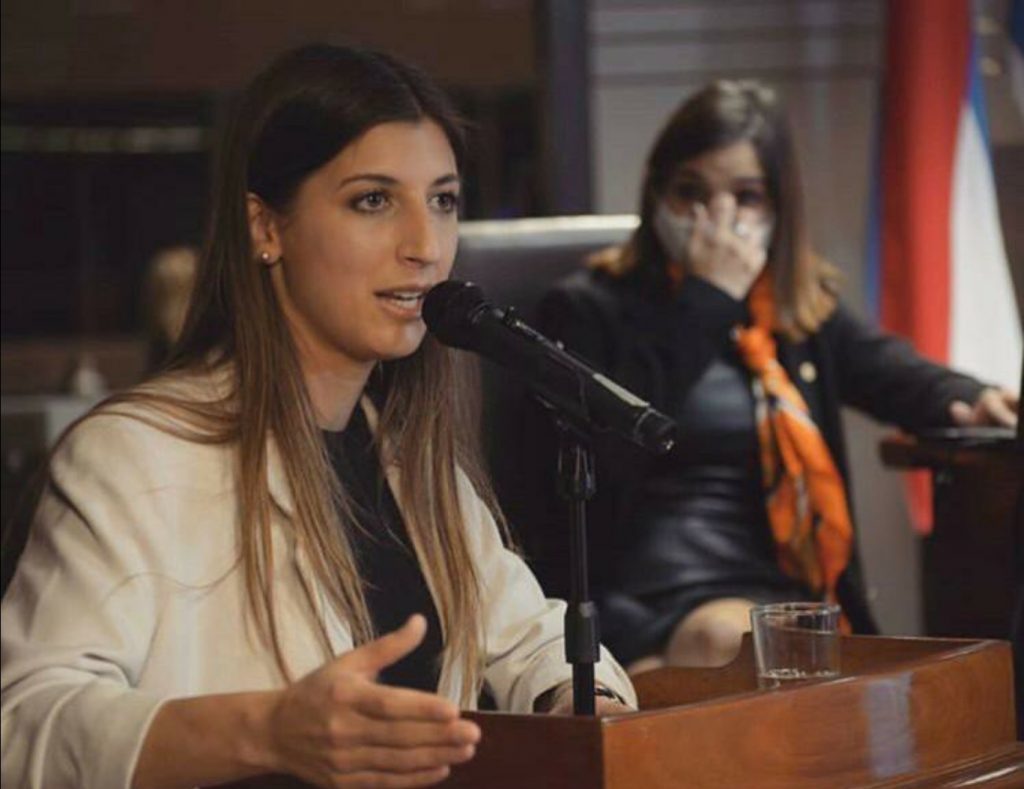
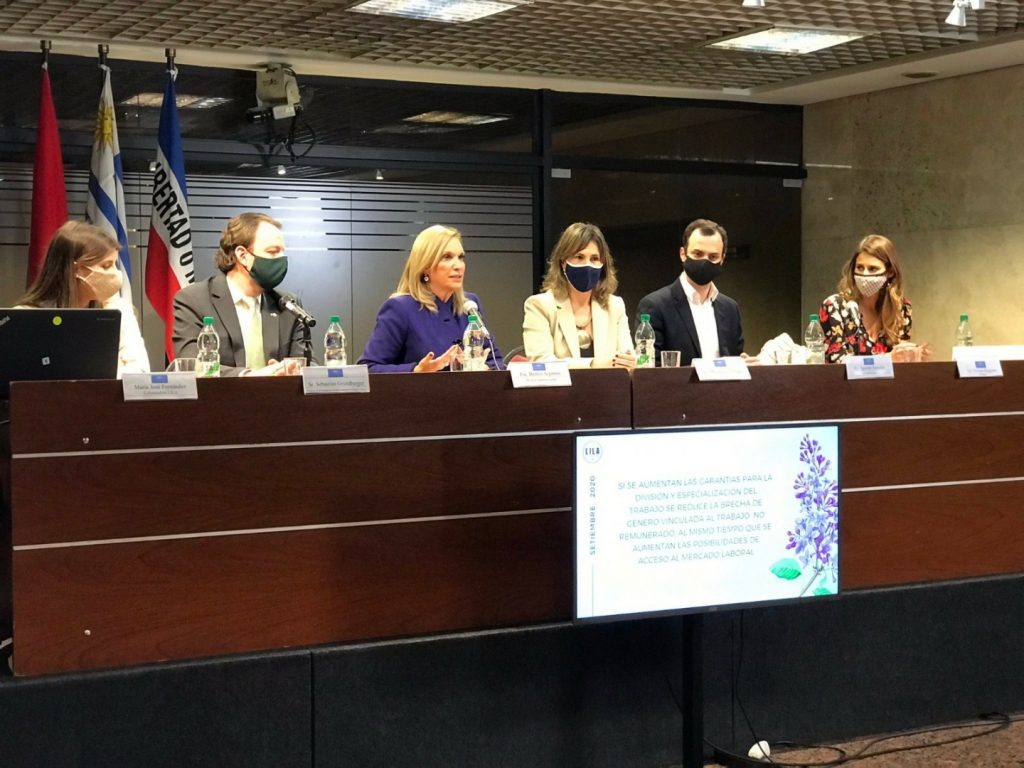
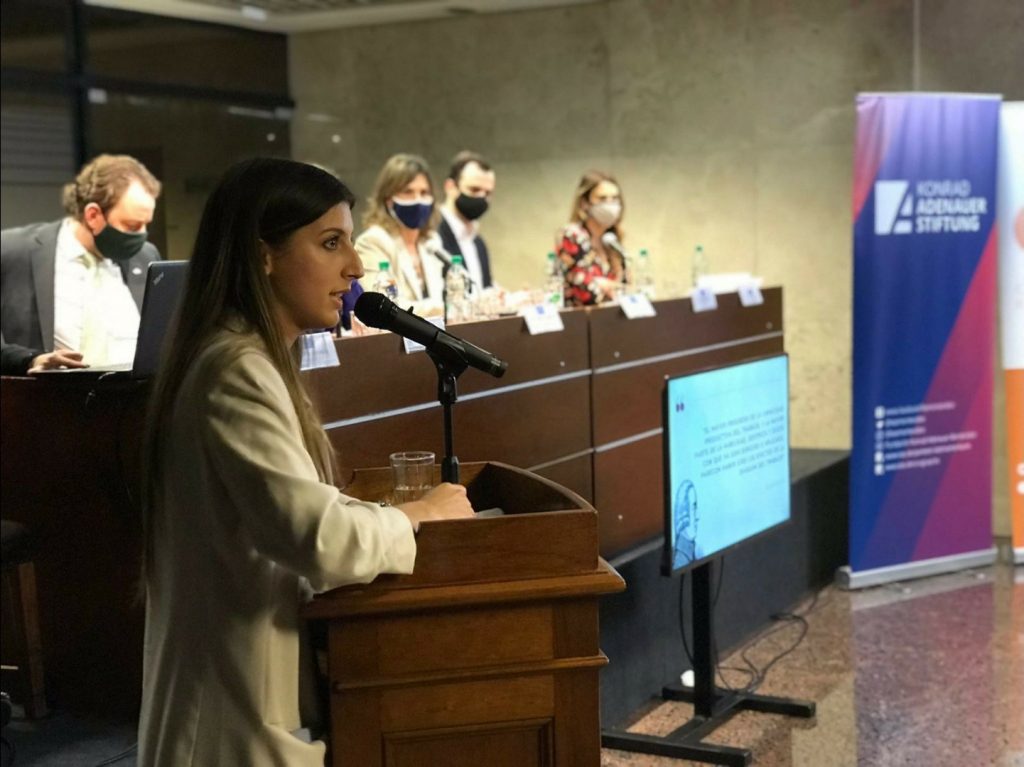
María José speaks on female contribution to the national growth among the Uruguayan Parliament.
How I Found Liberty
Connecting with the work of Adam Smith
I discovered the ideas of liberty when I was a teenager by reading Adam Smith’s classic, The Wealth of Nations. This book was my first introduction to classical liberal ideology and sparked my passion to become an Economist as I began to understand the benefits of the division of labor, competition, and trade. Furthermore, it helped me understand the complexity of how individuals make decisions with scarce resources and what variables influence this behavioral process.
By reading Smith’s book, I came to understand that the study of human interactions is a phenomenon hard, if not impossible, to proficiently modelize, and consequently to predict. This is due to the natural complexity of determining which variables lead a human being to behave in a determined way. Therefore, any government intervention is based upon assumptions and simplifications of this reality, and when we don’t take individual motives into consideration, we end up creating distortions and inefficiencies within markets. In short, we can do more harm than good when we replace individual decision-making with government decision-making.
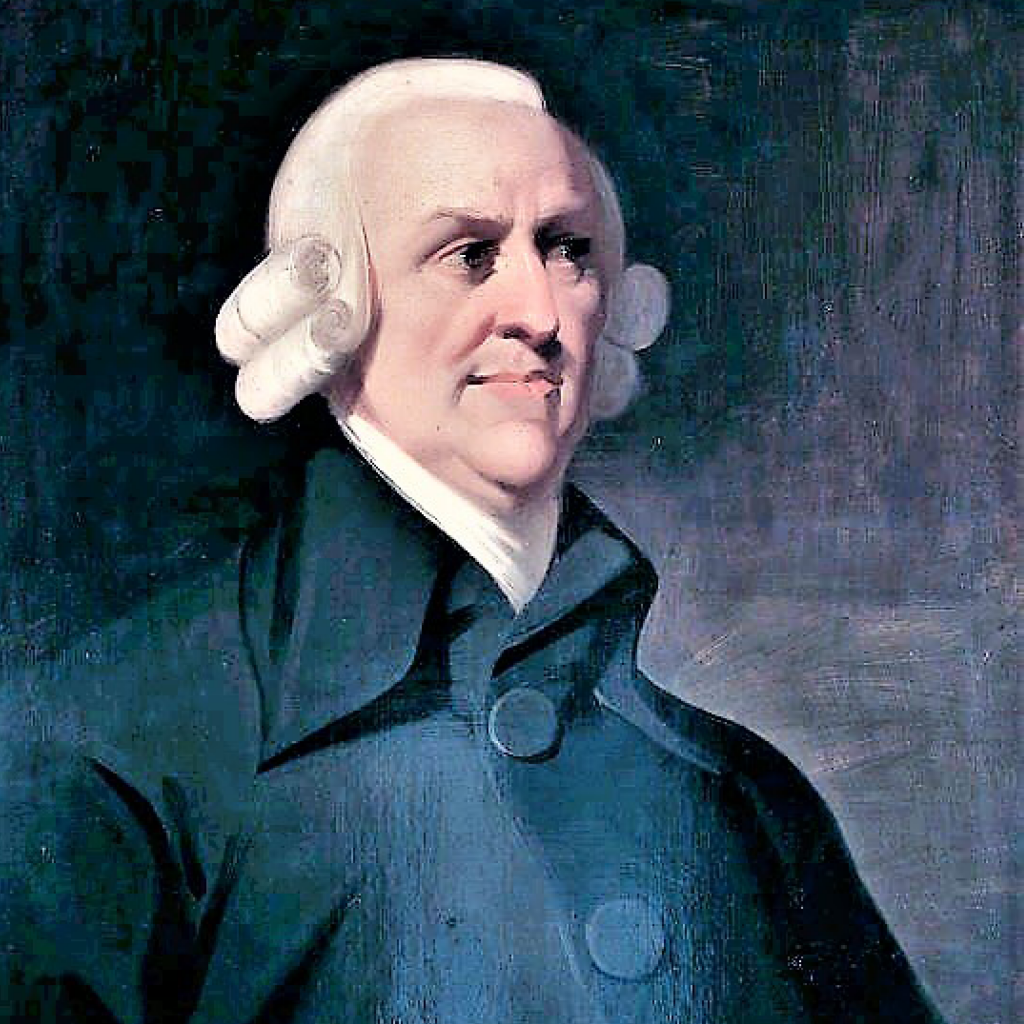
After reading Adam Smith’s Wealth of Nations, I began reading from other liberty-minded authors like Ludwig Von Mises, F.A. Hayek and Carl Menger in which I learned more about methodological individualism. These authors helped me understand how important it is to comprehend the role of the individual in society; it was then that I identified myself with the ideas of classical liberalism.
My favorite Economist is probably Ronald Coase. I like him because of his theory on the importance of property-rights delimitation, and how it leads to efficient solutions in the resources-assignation process. Ronald Coase belongs to the New Institutional Economics school of thought, which theorizes on the role of institutions (for example the State) in modern society.
The principles of classical liberalism that I connect the most with are individual freedom and rights protection by the state explained by John Locke as well as Adam Smith’s defense of economic freedom for the prosperity of nations. I connect the most with these ideas because I believe the State’s role in society is relevant, but I also do consider that its core duties such as individual freedom and individual rights must always be protected.
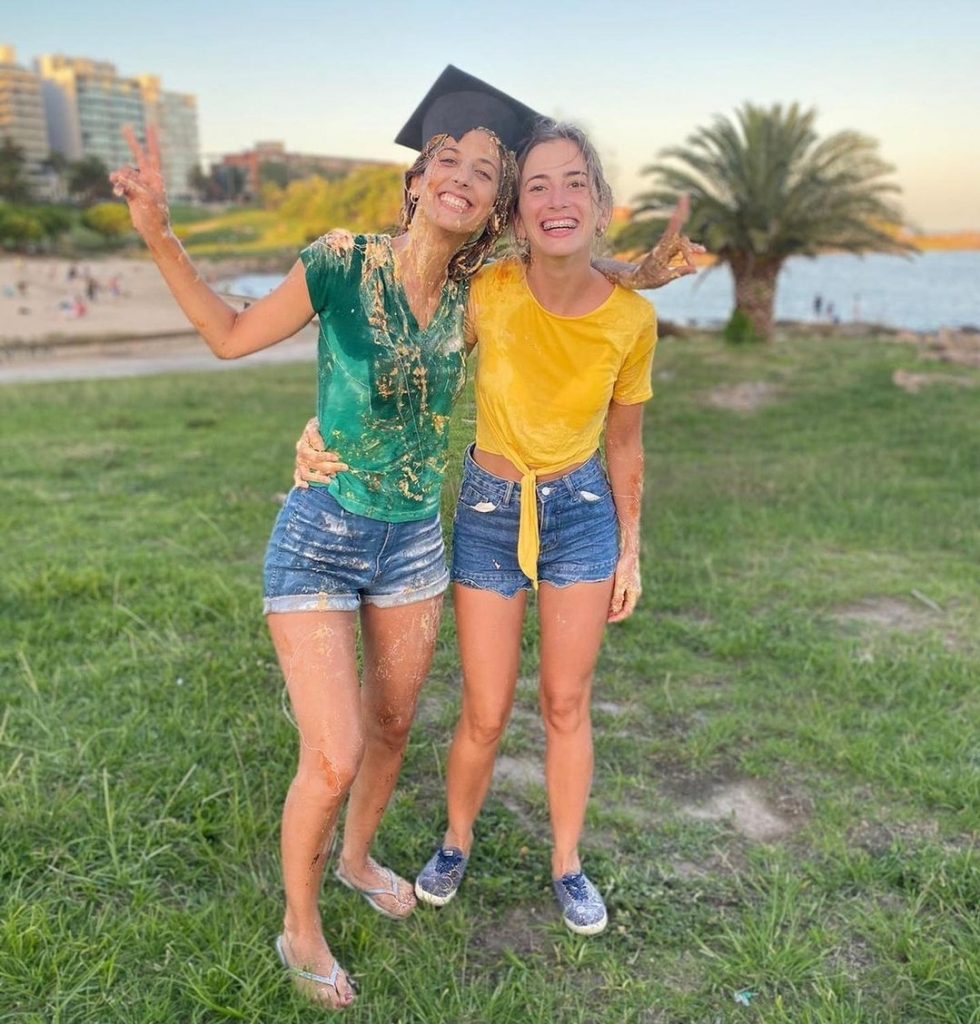
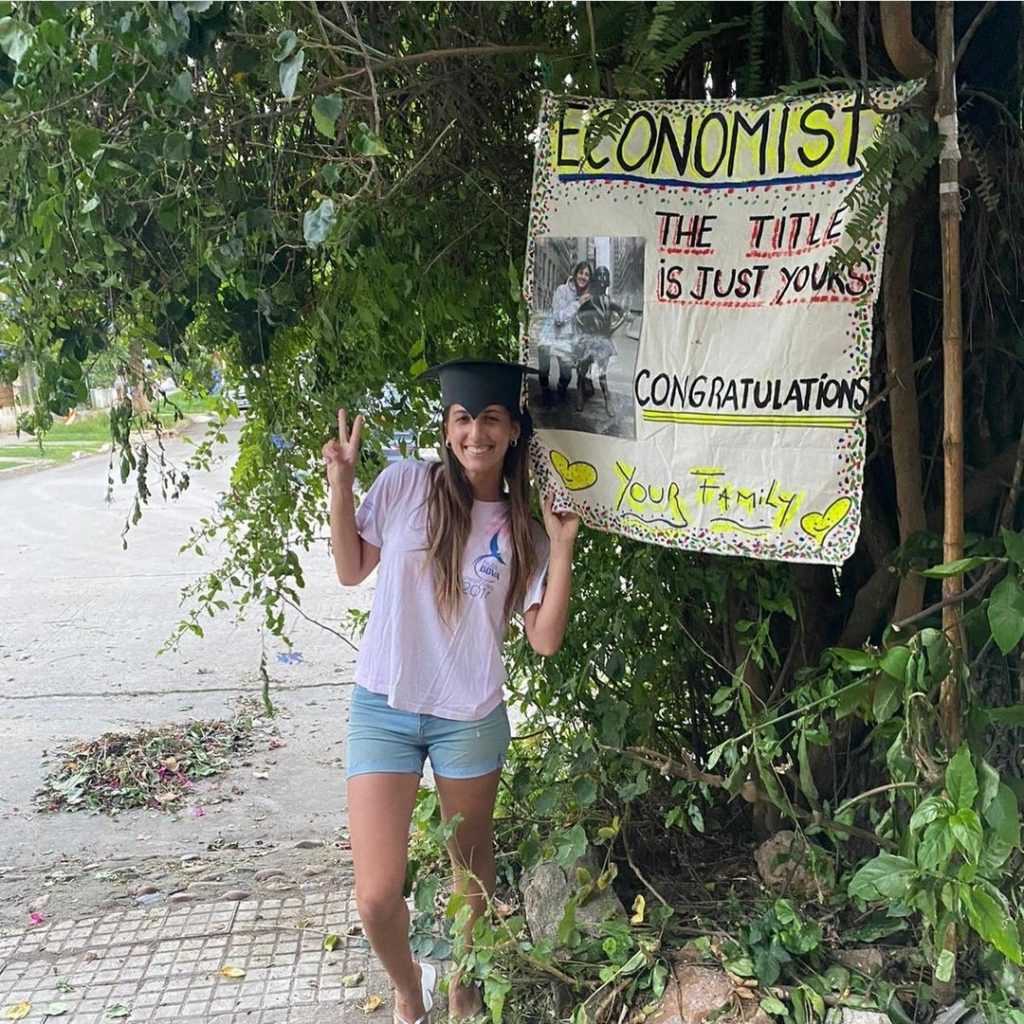
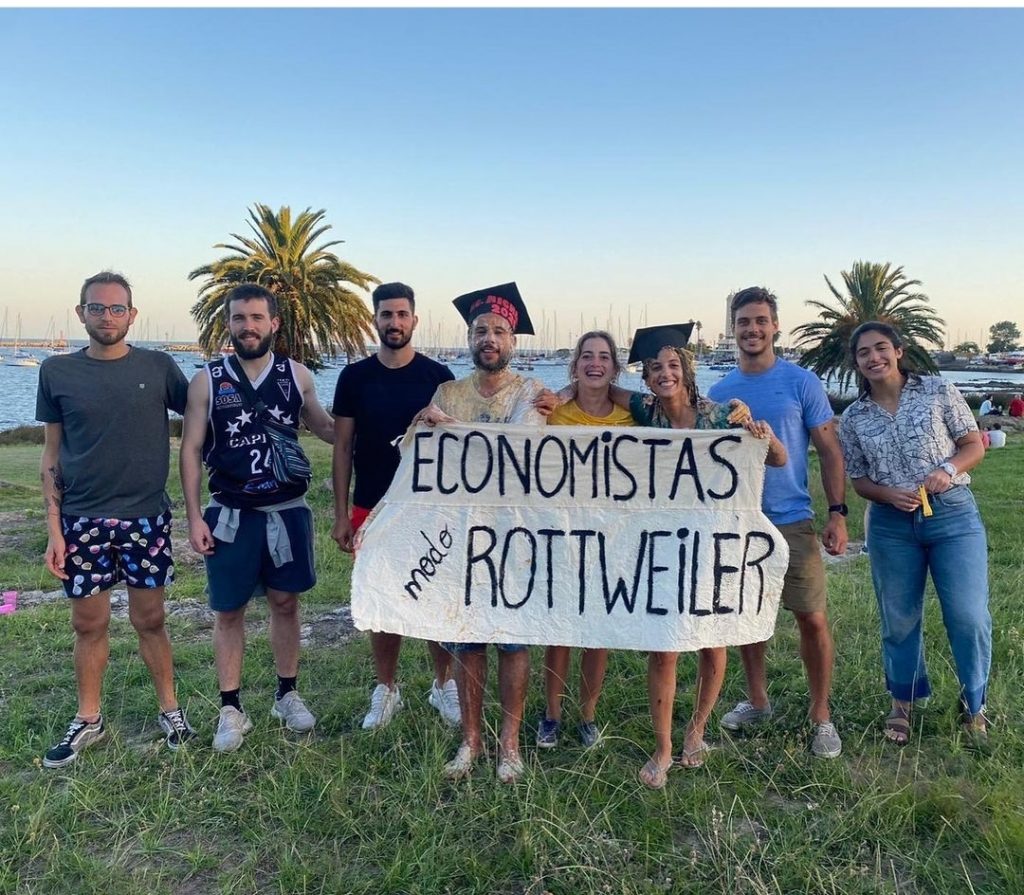
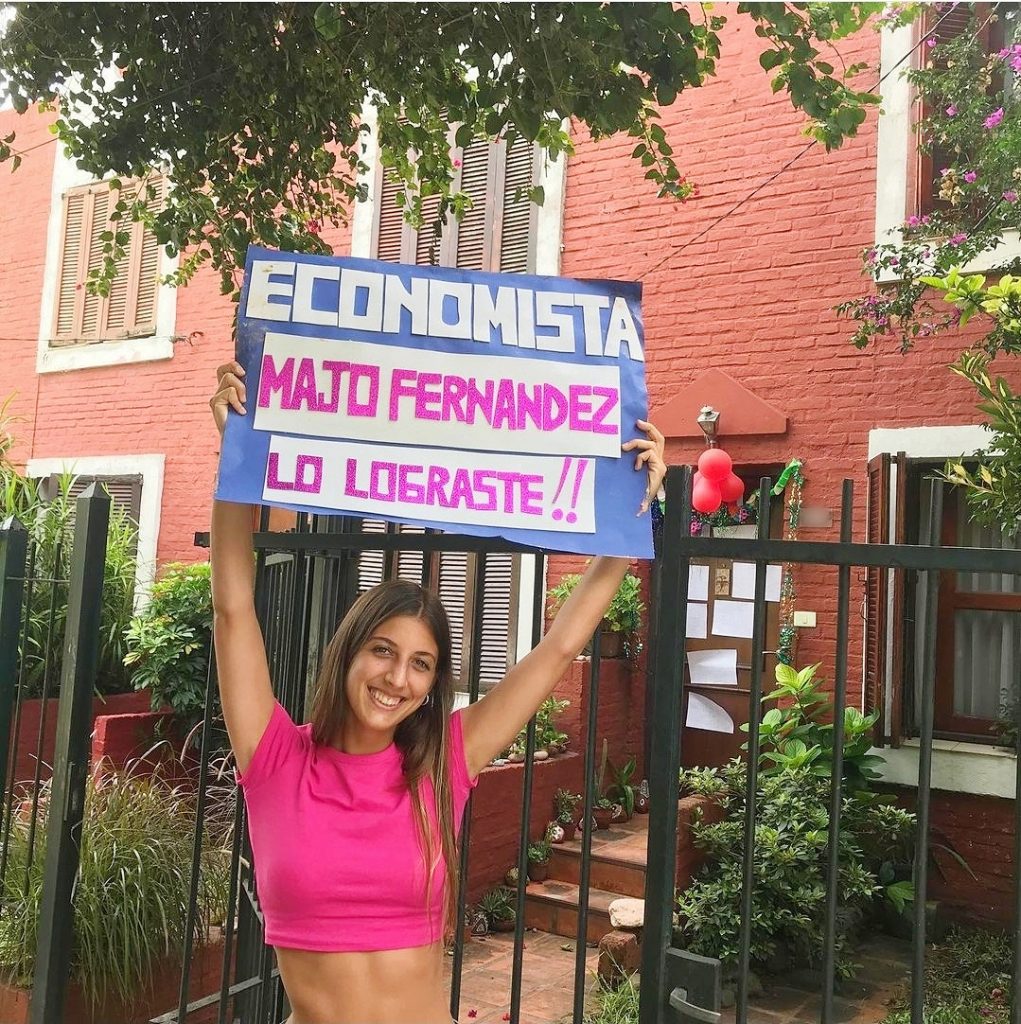
María José graduates with her Economics degree from Universidad de la República
Recent graduate and Economist
My most recent and exciting news is that I officially became an Economist in February of this year, as I graduated with my Economics degree from Universidad de la República. In school, I chose to take courses that involved public and corporate finance as well as public policy analysis (such as monetary and fiscal policy). Currently, I am pursuing my Masters in Economics, which I will obtain in two years. In the future, I would like to obtain my second graduate degree in order to develop a professional profile in the field of Macroeconomics and public finance.
Currently, I work as a Financial Analyst at a trading company, and my main duty is the financial analysis of the stock market performance and risk/yielding of companies’ public shares.
Currently, I am learning more from Elinor Ostrom’s research on the nature and administration of common goods. I find Elinor’s neo-institutional approach on the theory of the tragedy of the commons interesting. It’s amazing how small local communities with certain characteristics are more efficient in solving the administration of common goods than the state itself.
A fun fact about me is that, besides being an Economist, I am also a goldsmith/jeweler. I spend most of my free time elaborating and repairing fine jewelry and I find it quite entertaining! Additionally, I also absolutely love singing. I am quick to learn lyrics and last year I started taking flamenco-singing lessons here in Uruguay.
My LOLA journey
In January 2020, Sabrina Riveiro and I founded our LOLA Chapter: Liga de Liberales Asociadas de Uruguay (LILA Uruguay). Sabrina and I first met through a dinner hosted by another libertarian group, as we quickly discovered that we shared the same views regarding liberty and women. When she spoke to me about what LOLA was, we instantly decided that we had to build our own chapter here in Uruguay. This started our work together as we planned and developed the foundations of LILA.
We knew right away that we wanted to use our LOLA Chapter to advance libertarian ideology and talk about a topic very important to women here: libertarian feminism.
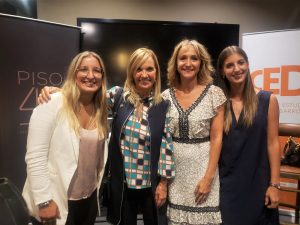
Chapter Leaders María José (far right) and Sabrina Rivero (far left) pictured alongside Uruguay’s Vice President (second from left) 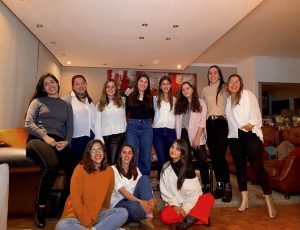
LILA Uruguay gathering 
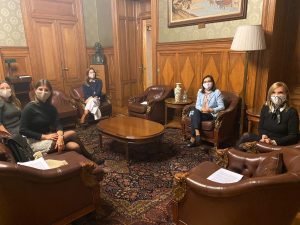
María José and Sabrina Rivero working on a study on women’s economic contribution to GDP alongside Uruguays Vice President.
My LOLA Chapter
Revindicating the original libertarian foundations of feminism
Our aim with LILA Uruguay is to revindicate the original libertarian foundations of feminism. Sabrina and I found that there were many feminist groups speaking of capitalism and economic freedom as enemies of women, leaving many women feeling isolated and outcasted if they held different views. We provide women with an alternative to traditional feminist groups, one centered around the ideas of liberty.
In LILA Uruguay we teach women that economic freedom and capitalism help make women freer, create the incentives necessary to generate technological progress, and leave women more independent and empowered. LILA was born to empower women under classical liberal philosophy and provide women an alternative to traditional feminist groups.
LILA Uruguay members usually reunite informally to stay connected. We meet at each other’s house, share meals together, go out for drinks, build friendships, and we often arrange events with the participation of female leaders from the political or corporate field.
Additionally, LILA Uruguay has been featured on a popular radio station here called Radio Carve in which we discuss issues regarding liberty, feminism, and international affairs. The column in which we are featured is called Columnas en Concreto or ‘Concrete Columns’ in English. We discuss topics such as –What we have achieved as a society and what we are lacking in inequality (listen in Spanish).
As one of LILA’s co-founders, it is an honor for me to lead an organization with so many valuable women in it. Through our Chapter, we are able to motivate and support one other, grow in our community, and celebrate our triumphs together.
I find it supportive and empowering to belong to a wider global organization with leaders just like me advancing the message of liberty. This makes our message more powerful and helps us know we are not alone in the liberty movement. It helps make us more aware of other realities and challenges that others are facing across the globe. It’s comforting to know we have hundreds of other women around the world standing for the same thing.
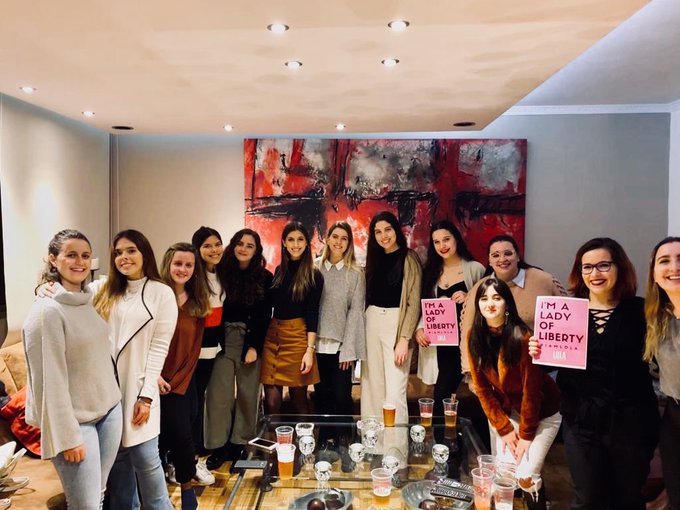
The liberty movement in Uruguay
The liberty movement in our Country lacks popularity among the population, and has difficulty reaching political representation. Furthermore, there is a low amount of women involvement in the liberty movement, and that was one of the reasons why we decided to start our own movement through our LOLA Chapter.
In Uruguay, women have conquered many rights through the years, but we still encounter situations that challenge the notion that both men and women have equal opportunities. For example, we have a low rate of women representation in politics, and a scarce participation of women in terms of corporate management. This is a concern because of how disproportionate it is in comparison with the total female population: more than 50%. This implies that many women are facing barriers to reach positions of power.
Additionally, violence against women is a national concern that is still hard to defeat. Many girls and women struggle to carry out their lives when their freedom and rights are not respected. The situations described above are what provide a foundation to feminist movements, and that is why I consider myself a libertarian feminist, because I want to change this reality.
Creating the first libertarian-feminist movement in Uruguay was no easy task. We often faced inquiries about how these two things are compatible. Our answer is that being a libertarian means advocating for equal rights between women and men. As David Cato points out “A libertarian must necessarily be a feminist, in the sense of being an advocate of equality under the law for all men and women,” and that is what feminism claims: equal rights and equal treatment for both women and men. We seek to restore feminism back to its classical liberal roots.
Support Ladies of Liberty like María José as they advance the ideas of liberty.


